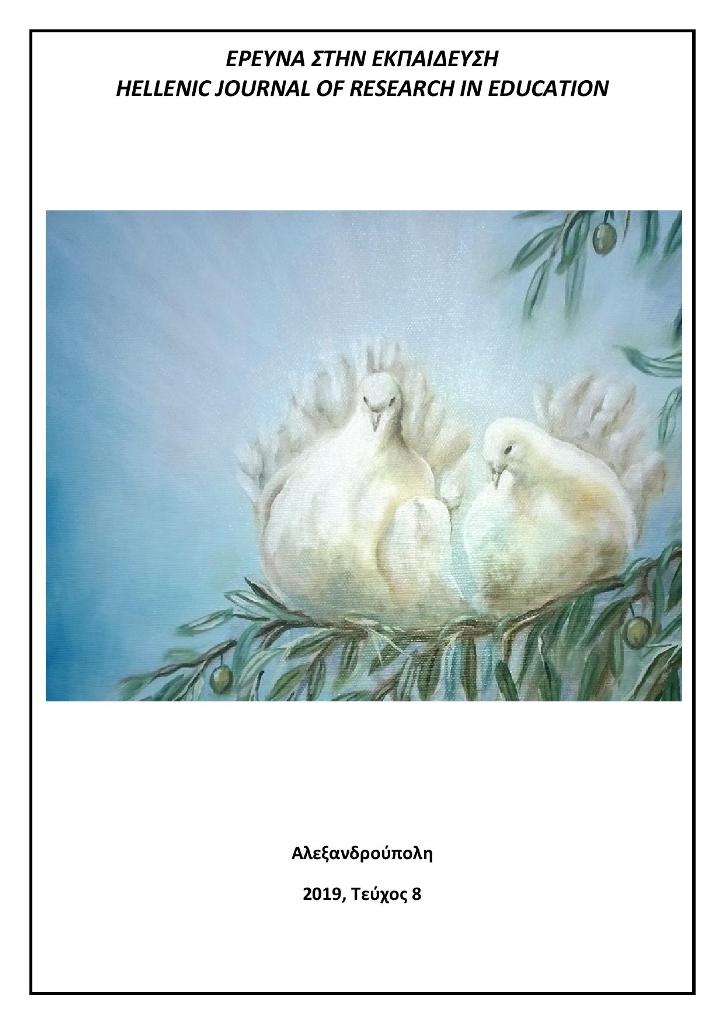Εκπαίδευση της Δεξιότητας Συζήτησης σε Ομάδα Ατόμων με Αναπτυξιακές Αναπηρίες: Ένα Πρόγραμμα Παρέμβασης

Περίληψη
Ο στόχος αυτής της ποιοτικής έρευνας ήταν η εκπαίδευση κοινωνικών ανταλλαγών και συγκεκριμένα της δεξιότητας συζήτησης σε επτά ενήλικες με αναπτυξιακές αναπηρίες (μέτρια και σοβαρή νοητική αναπηρία, σύνδρομο Down και αυτισμός με νοητική αναπηρία). Οι συμμετέχοντες/ουσες, που αποτέλεσαν μία ομάδα, εκπαιδεύτηκαν με ερωταποκρίσεις να διαλέγονται μεταξύ τους με τη βοήθεια εικόνων. Χρησιμοποιήθηκε ένα ημι-πειραματικό σχέδιο βάσεων, εκπαίδευσης (με ερωτήσεις και εικόνες), επιστροφής στη βάση και εξέτασης με απόσυρση των αρχικών συστατικών εκπαίδευσης (εικόνων), για να δείξει την κατάκτηση της δεξιότητας. Το πρόγραμμα παρέμβασης διήρκησε δύο μήνες. Και οι επτά συμμετέχοντες/ουσες που ξεκίνησαν από μηδενική βάση κατέκτησαν την ικανότητα συμμετοχής στη συζήτηση ανάλογα με το δυναμικό τους. Η εκπαίδευση και η παρεχόμενη δομή αυτής της παρέμβασης αύξησε τον αριθμό των ανταλλαγών τους κι έδωσε τη δυνατότητα και τον τρόπο να κοινωνικοποιηθούν. Με αφορμή την παρέμβαση αυτή αποδεικνύεται πως τα άτομα με αναπτυξιακές αναπηρίες δύνανται να διδαχθούν δεξιότητες συζήτησης σε ομάδα.
Λεπτομέρειες άρθρου
- Πώς να δημιουργήσετε Αναφορές
-
Λάππα (Lappa) Χ. (Christina) Σ., & Μαντζίκος (Mantzikos) Κ. (Constantinos) N. (2019). Εκπαίδευση της Δεξιότητας Συζήτησης σε Ομάδα Ατόμων με Αναπτυξιακές Αναπηρίες: Ένα Πρόγραμμα Παρέμβασης. Έρευνα στην Εκπαίδευση, 8(1), 17–40. https://doi.org/10.12681/hjre.19492
- Τεύχος
- Τόμ. 8 Αρ. 1 (2019)
- Ενότητα
- Άρθρα

Αυτή η εργασία είναι αδειοδοτημένη υπό το CC Αναφορά Δημιουργού – Μη Εμπορική Χρήση – Παρόμοια Διανομή 4.0.
Τα πνευματικά δικαιώματα των άρθρων του περιοδικού ανήκουν στους συγγραφείς. Τα άρθρα διατίθενται με άδειες Creative Commons CC-BC-SA 4.0



